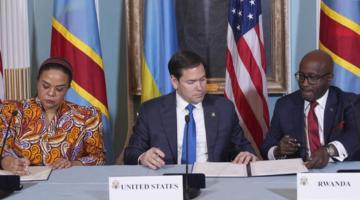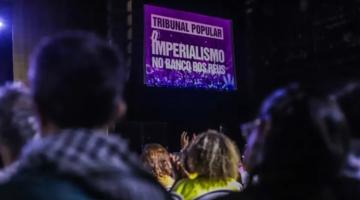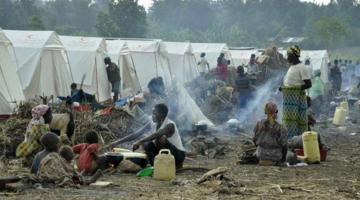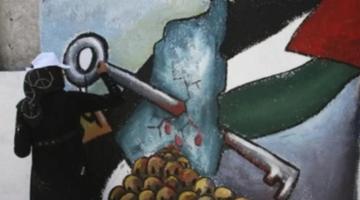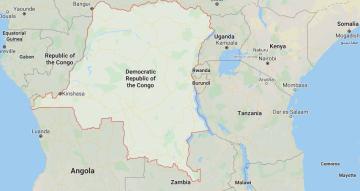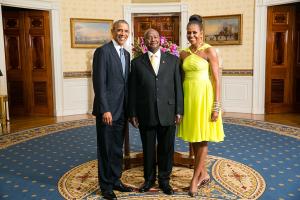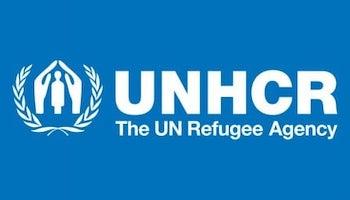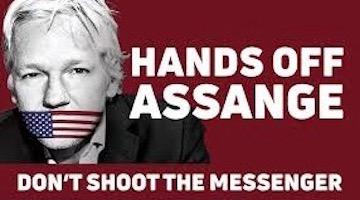General Augustin Ndindiliyimana, left, was acquitted of all charges in the International Criminal Tribunal for Rwanda's Appeals Court after a 14-year battle waged by the late Christopher C. Black, right.
Christopher C. Black fought for justice in politically agendized international courts.
International criminal defense attorney and writer Christopher C. Black died suddenly on June 5, 2025. He will be sorely missed. His analysis of the imbalanced scales of international justice and his representation of those wrongly accused should be long remembered and honored.
The height of Black’s career was winning the acquittal of Rwandan General Augustin Ndindiliyimana after a 14-year battle at the International Criminal Tribunal for Rwanda. General Ndindiliyimana was accused of genocide crimes, but he'd actually saved many civilians in Kigali during the final 100 days of the 1990 to 1994 Rwandan war.
Ndindiliyimana’s trial was an important moment in the history of the politically agendized, US-controlled court, which tried only Rwandan Hutus and thereby established the genocide narrative that became so useful to the US and other Western powers, not only in Rwanda and Congo but also in humanitarian interventionist ideology. The US farcically declared “stopping genocide and mass atrocities” to be its official foreign policy, and “stopping the next Rwanda” became Western imperialists’ rallying cry to justify invasions in Libya and Syria. After the US had destroyed Libya and assassinated its leader, Muammar Gaddafi, then UN Ambassador Susan Rice flew first to Libya, then to Rwanda to declare that we got it right this time.
Speaking in 2015 at the annual Rhodes Forum held by the Dialogue of Civilizations think tank, Christopher Black said, “The point of these tribunals, why they were set up, is basically propaganda. That’s their only real role. The propaganda is to put out a story about the war with which they’re concerned, and the propaganda is meant to demonize the government which has been overthrown, and to cover up the real role of the United States and its allies in that war. And that’s the only role these trials really have.”
I spoke to Phil Taylor, former investigator at the ICTR and current host of The Taylor Report on CIUT FM-University of Toronto, about Christopher Black’s life and work.
ANN GARRISON: Phil, can you first tell us how you met and became friends with Christopher Black?
PHIL TAYLOR: Chris and I worked for the same law firm, Roach & Schwartz, headed by a much respected people's lawyer and a leader in Toronto’s Black community. We worked together on a number of cases before Chris took up an independent practice.
AG: The United Nations created the International Criminal Tribunal for Rwanda, also known as the ICTR, to prosecute crimes committed between January 1 and December 31, 1994. Tell us about your work with him there.
PT: Together with others, particularly ICTR lawyer Tiphaine Dickson, I encouraged Chris to consider defending General Augustin Ndindiliyimana, which he fortunately agreed to do. When he took up the case, I was employed as an investigator by other defendants, but Chris and I interacted regularly to keep abreast of the issues and challenges faced by defendants and defense counsel.
AG: The story of Rwanda and the ICTR has occasioned abundant scholarship, much of it propagandistic, and it will no doubt be studied for years to come. What would you hope to be Christopher Black’s lasting contribution?
PT: As Chris said in his talk at the Rhodes Forum, propaganda was the purpose of the court. It was created to reduce the history of the 1990-1994 Rwandan war and its final 100 days to a Manichean tale of demonic Hutus massacring angelic Tutsis. The reality was far more complex, but the simple Manichean tale served the purposes of its creators, the US and the UN, which was then dominated by the US in the aftermath of the Soviet Union’s collapse. Remember that former UN Secretary General Boutros Boutros-Ghali told Canadian author Robin Philpot that the Americans were largely responsible for the events of 1994.
US leaders wanted their guy, Rwandan Tutsi General Paul Kagame, to seize power in Kigali and become a hero to the international community as the leader who stopped the genocide. Two years later they supported Rwanda and Uganda’s invasion of the Democratic Republic of the Congo, which was then Zaire, to topple aging dictator Mobutu Sese Seko and displace France as the dominant power in Central Africa. Newsweek explained this in its May 11, 1997, report “Washington’s Africa Move.”
All the cases adjudicated at the court should be studied in light of this propagandistic narrative that Chris identified as the purpose of the court. Only Hutus were indicted and prosecuted, making it the very definition of victor’s justice, but Chris nevertheless fought like a tiger for his innocent client, General Ndindiliyimana, and eventually won.
AG: The established narrative about the Rwandan Genocide says that the UN simply stood by and allowed it to happen. What role did it actually play, and why did Boutros Boutros-Ghali blame the Americans?
PT: Kagame’s Rwandan Tutsi army was guilty of many civilian massacres, particularly of the majority Hutu population, throughout the four-year Rwandan war. The infamous “100 days of genocide” began after Kagame ordered the assassination of Rwanda and Burundi’s Hutu presidents by shooting their plane out of the sky over Kigali on April 6, 1994. This panicked the Hutu population, who began massacring Tutsis, while at the same time Kagame’s army began a long-planned offensive to finally seize power in the capital, Kigali. Kagame’s army committed civilian massacres on its way to Kigali and after, but no one has ever been indicted for their crimes.
President Bill Clinton instructed his UN Ambassador Madeline Albright to keep the UN Security Council (UNSC) from sending in troops to stop the killing because they wanted Kagame to come out on top.
The major “human rights” NGOs worked diligently to demonize the existing Rwandan government, and they had ready access to Bill Clinton’s White House. During ceasefire negotiations, Human Rights Watch, led by Alison des Forges, even tried to have Rwanda’s UN representatives arrested.
AG: Can you talk more about Chris’s defense of General Ndindiliyimana?
PT: Chris found excellent witnesses to testify, most notably Colonel Luc Marchal, who was second-in-command of the UN Peacekeeping Forces and commander of forces in the capital, Kigali. Ndindiliyimana was commander of the gendarmerie, the military police in the capital, so the two of them worked closely together, doing their best to protect civilians.
Colonel Marchal testified to the integrity of General Ndindiliyimana and to the specific actions he took to protect civilians.
Chris diligently exposed the falsehoods and contradictory testimony of the general’s accusers.
In 2014, General Ndindiliyimana was acquitted of all charges in the ICTR Appeals Chamber. He returned to his family in Belgium shortly thereafter.
Ann Garrison is a Black Agenda Report Contributing Editor based in the San Francisco Bay Area. In 2014, she received the Victoire Ingabire Umuhoza Democracy and Peace Prize for her reporting on conflict in the African Great Lakes region. She can be reached at ann@anngarrison.com. You can help support her work on Patreon.
Christopher Black’s essays are compiled on the website of New Eastern Outlook. His novel, Beneath the Clouds, is available on Amazon. He is survived by his life companion Gail, son Aidan, and grandson William.
Phil Taylor is a former investigator at the ICTR and current host of The Taylor Report on CIUT FM-University of Toronto.

